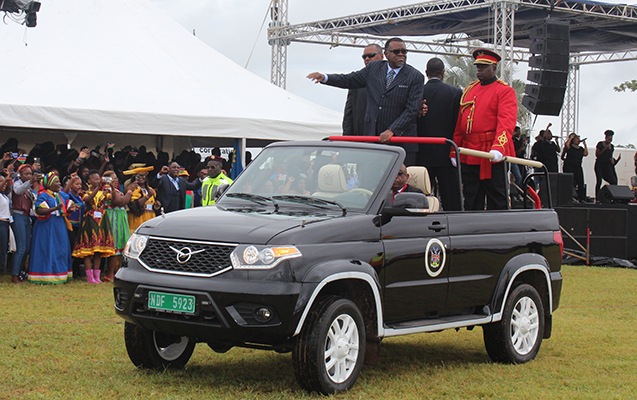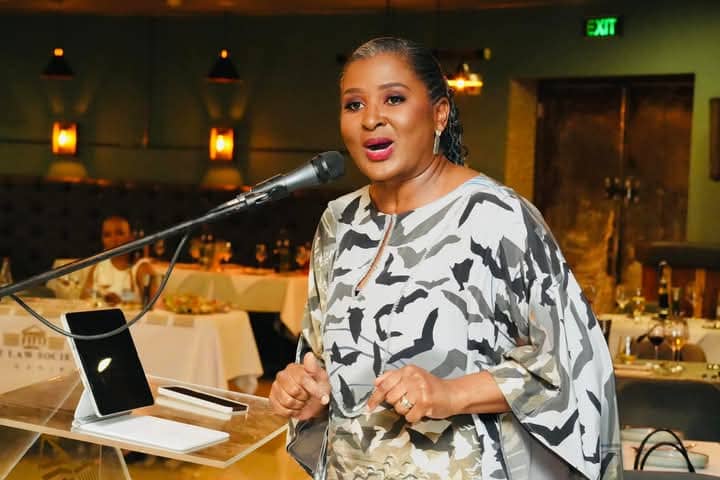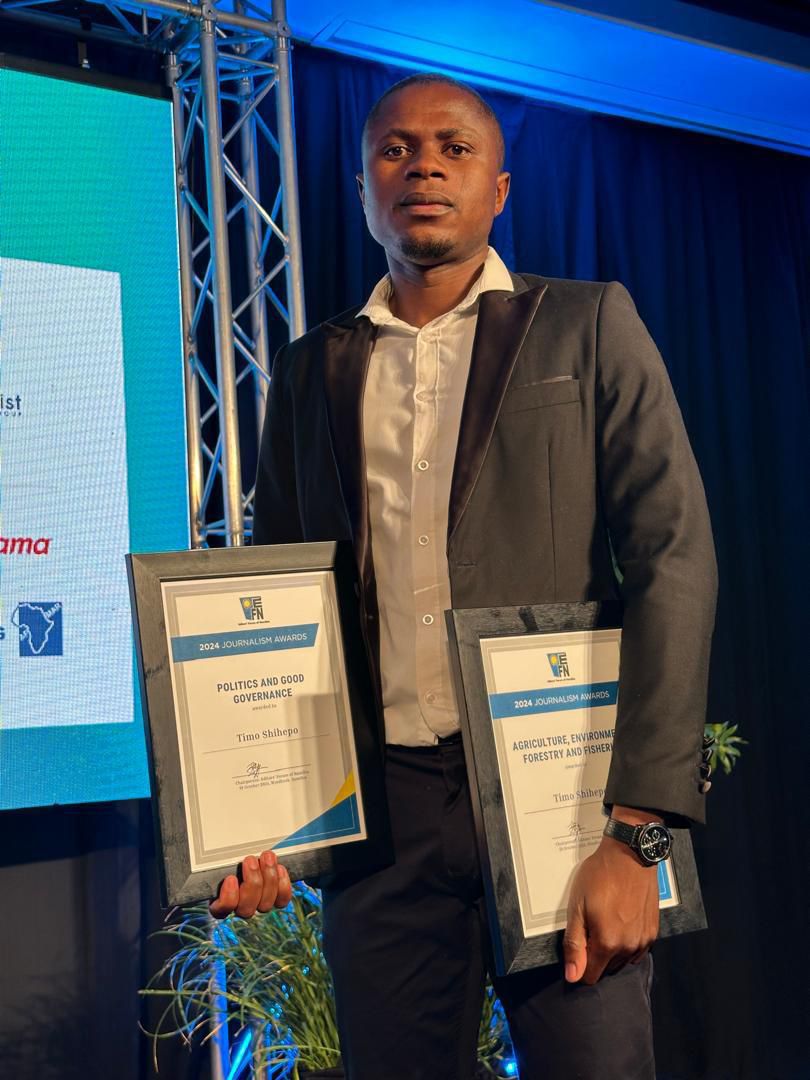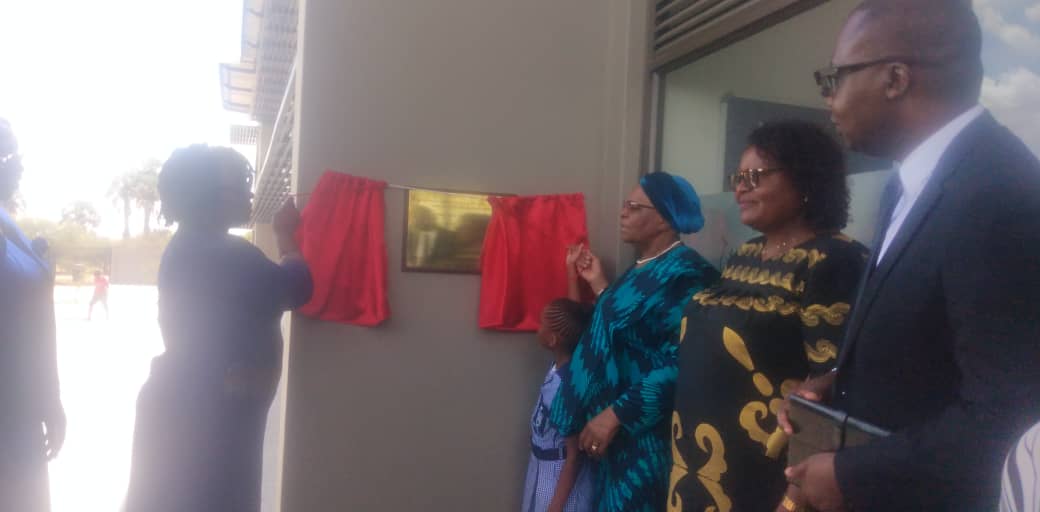PRESIDENT Hage Geingob yesterday took a swipe at critics of the food bank programme who say that the welfare initiative will create a culture of laziness, saying Namibians are already lazy.
Speaking during the 28th Independence Day celebrations at the colourful Oscar Norich Stadium at Tsumeb, Geingob said the government never claimed that the food bank was the answer to all the country’s problems.
Although it had rained heavily in the past few days before the event, yesterday’s weather was perfect as it was cloudy but it did not rain, much to the delight of the organisers who expected a repeat of Monday and Tuesday’s weather.
Before delivering his speech, the people were entertained by several traditional dances from different cultural groups. There was also a military parade as well as fly-pasts.
Geingob said the food bank programme falls under the Harambee Prosperity Plan as part of efforts to reduce poverty in the country.
By March last year, more than 90 000 individuals from 22 000 households had benefited from the foodbank in Windhoek.
“We didn’t say it’s the pinnacle. This is part of our efforts. Take money from your pocket also and give them. They will appreciate it, but they will not be dependent on you,” he said.
The President also said claims that the food bank will make people lazy are not true as they (Namibian people) are already lazy. This behaviour, he said, is not fuelled by government strategies in addressing poverty.
“The food bank will not make them lazy. They are already lazy, and sitting there helplessly,” he charged.
The food bank has often come under criticism in the past from the public. Food banks are warehouses packed with food, which is given to the needy. This bank is operated by unemployed youth organised into “street committees”.
Last week, the Namibia Statistics Agency announced that there had been a slight decrease in poverty and income inequality levels. However, poverty remains prevalent, specifically among the rural communities.
According to statistics of the Namibia Household Income and Expenditure Survey of 2015/16, the Gini coefficient, which is a measure of income inequality, has dropped by 2% from 58% during the 2009/10 survey to 56% in the 2015/16 survey.
Meanwhile, the President added that he is the first to admit that government would have loved to sustain a higher rate of progress and implementation.
“But we had to contend with independent intervening variables beyond our control. The past four years have been fraught with “headwinds”, brought about by a global economic downturn, characterised by falling commodity prices and exchange rate fluctuations,” he stated.
Geingob added that this “perfect storm”, as some have termed it, has had a direct impact on the country’s economy and revenue base.
“We have, as a result, implemented the biggest expenditure cuts since independence. We are aware that some of the necessary interventions have hurt small businesses, and led to job losses.
“It is why as government, we are encouraging small and medium enterprises to diversify their business portfolios,” he continued.
Geingob also repeated his warning that Namibians should guard against tribalism and racism, to huge applause.
Vice President Nangolo Mbumba, who had the honour to introduce Geingob to the public, made slight jokes about the atmosphere at the stadium.
He praised the copper town stating, that two of Namibia’s Presidents came through the town’s Swapo regional structures before they were afforded an opportunity to be President of the country.
This is former president Hifikepunye Pohamba, who once lived at Tsumeb while working at a mine there, and current President Geingob.
Much to the delight of those gathering at the stadium, Mbumba said former President Sam Nujoma, who was seated closed to him, “beamed” with joy as he watched the parachutes coming down.
“He (Nujoma) said this is a beautiful country,” Mbumba said.
Stay informed with The Namibian – your source for credible journalism. Get in-depth reporting and opinions for
only N$85 a month. Invest in journalism, invest in democracy –
Subscribe Now!






